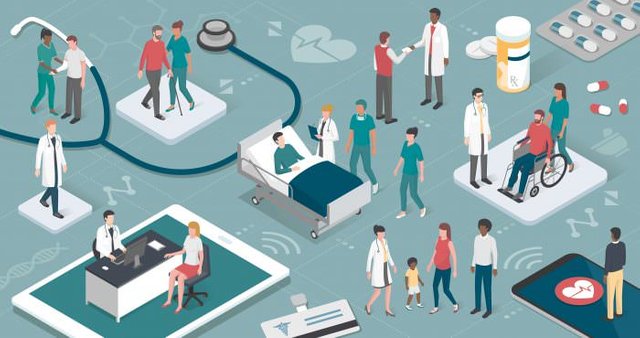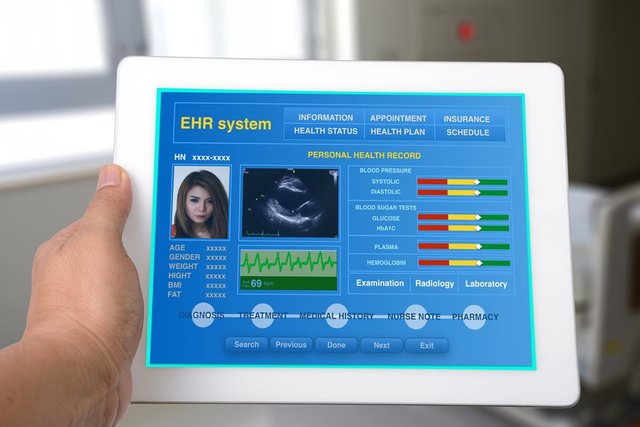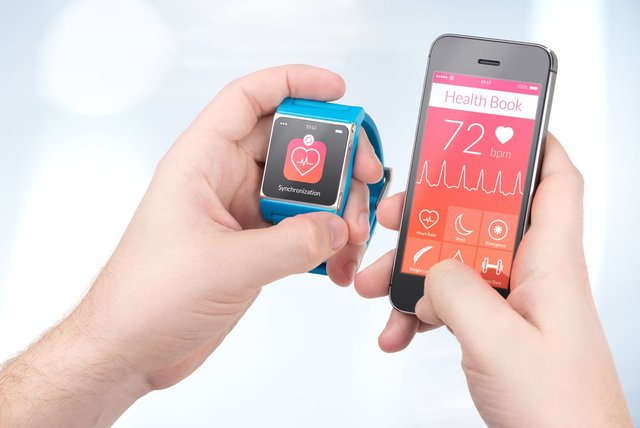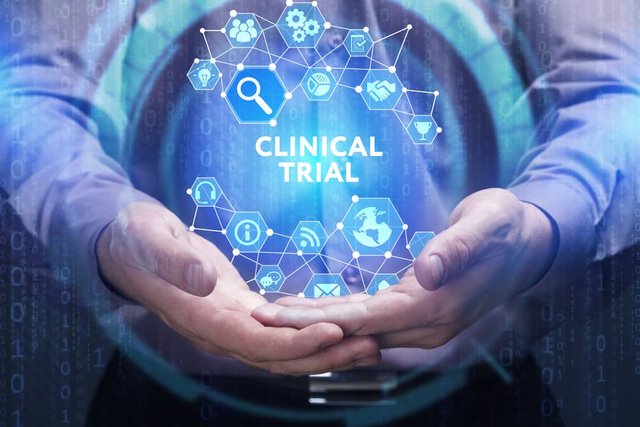Healthcare blockchain: from beta-blockers to bed blockers
Healthcare is waking up to the possibilities that an injection of decentralized platforms built on trust and maintained by the multiple parties engaged with them – blockchain – could be good for us.

Highest benefits of blockchain will be in clinical trial data, regulatory compliance and health records
First users in healthcare are already moving beyond trialling the technology and into implementation stages. A recent IBM Institute for Business Value (IBV) survey found that 16% of healthcare executives expect to have a blockchain network in production this year, while 56% expected to by 2020.
Seven in ten industry leaders from the IBV survey anticipate that the highest benefits of blockchain will be in areas such as managing clinical trial data, regulatory compliance and health records.
Electronic medical records
Current interoperability of patient health records, often scattered across multiple healthcare providers, makes healthcare an ideal candidate for blockchain in terms of securely, privately and comprehensively tracking medical information.
A report from Deloitte found that a nationwide blockchain network for electronic medical records could improve efficiencies and support better health outcomes. Test results could be shared in real time along with other medical data between professionals for research purposes and to create more cost-effective care.

Patients could also potentially become the owners of their data with blockchain-based solutions
Advocates say that the underlying architecture of trust in a blockchain platform lends itself ensuring the security, integrity and confidentiality of patient data.
Patients could also potentially become the owners of their data with blockchain-based solutions such as MedRec. This allows patients to authorize new members to join their private, secure electronic health record community, approve changes, and govern sharing between their disparate providers.
According to a Harvard Business Review, any healthcare professional can access a patient’s entire medical history using MedRec since it integrates with their existing local data storage solutions.
Wearable devices and blockchain
Blockchain also widens the enormous potential of wearable devices. These devices go beyond fitness levels and sleeping patterns. Patient information can be stored electronically for numerous chronic long-term diseases. For example, wearable non-invasive sensors could allow continuous and convenient glucose-monitoring in diabetes.
IBM Watson Health recently partnered with the US Food and Drug Administration to explore the use of health data transfers from wearables and other internet of things devices using blockchain. The aim is to facilitate the secure transfer of health data and make it easily available to patients, researchers and healthcare providers.

Blockchain also widens the enormous potential of wearable devices
Ailis Mone, technology consultant at PwC UK, said: “With the use of blockchain, every wearable device and mobile application, could link to a patient hub with all of the patient’s health records, giving health-care professionals a single distributed view of the information in real-time and improved view of the patient.
“This could mean that less time is spent in review appointments as doctors may not have to see the patient face to face, creating cost efficiencies for the health service, and allowing medical professionals to focus on other areas of health protection and improvement. Medical professionals could be triggered to look at patient data if it is abnormal, potentially giving light to a life-threatening condition at an early stage.”
Clinical trials
Blockchain can also provide accountability and transparency to the clinical trial reporting process by curating all trials associated with a published study. The risky and unpredictable nature of the clinical trial process is a major driver of high costs for pharmaceutical drugs and this translates to higher drug costs.
Pharma giants Pfizer, Amgen and Sanofi have teamed together to find the most effective ways to utilise blockchain technology in clinical trial development from storing safe data to speeding up the process and ultimately lowering drug development costs.

Blockchain will be able to increase the quantity and quality of patients recruited for a clinical trial
According to Gunjan Bhardwaj, founder and CEO of Innoplexus, blockchain technology will also be able to directly increase the quantity and quality of patients recruited for clinical trials in a number of ways.
This is because a distributed ledger could allow individual patients to store their medical data by anonymous methods, thereby making it visible to trial recruiters, who could then reach out to the patients if their data qualifies for the clinical trial.
Blockchain and the NHS
The NHS in the UK is a free-at-the-point of entry system but, in reality, the service is constantly in crisis, especially in the winter, because the ongoing and rising demand for healthcare is greater than the system’s ability to provide it.
According to Helen Disney, founder & CEO, Unblocked Events, challenges in the NHS include excess paperwork and bureaucracy, frequently lost test results, interoperability issues and the burden of compliance with regulation.
She says: “The properties of blockchain technology make it well suited to fixing some of these challenges. Participants all have access to an identical, shared history of events that cannot subsequently be changed.”
Pilot studies
In May, start-up Iryo used refugee camps in the Middle East as its first real-world use case of blockchain-based electronic health records. It has partnered with the non-profit organization Walk With Me to provide the IT infrastructure needed to improve the quality of healthcare provided within camps managed by the organisation. Iryo will enable patients and their families to securely store their medical records within their own mobile devices.
Abdullah Albeyatti, a doctor at Leeds General Infirmary has also founded a blockchain platform called Medicalchain that enables the transparent exchange of medical records by patients and doctors. He created it after becoming frustrated with the lack of communication between stakeholders and the sharing of information within the NHS.
Medicalchain recently partnered with the London-based Groves Medical Group to pilot a blockchain programme in its four medical centres. This will allow Medicalchain to gather feedback from doctors and patients that they will use to refine the programme before its global launch.
The platform will then give patients the option to pay for services using cryptocurrency, with users being incentivised to pay for telemedicine services with Medicalchain’s MedTokens.
cyber security

Blockchain-related advances will change how we store health data
Cybersecurity threats and health security breaches
As blockchain technology organizes data so transactions can be verified and recorded through the consensus of all parties involved, it means that the ledger is not kept on a single repository. In theory, this means the data stored is impossible to hack, infringe, or steal as it is spread throughout multiple databases in replicate copies.
A Forbes article, however, highlighted many of the immediate challenges that the health sector faces today in cybersecurity.
Robert Lord, co-founder and president of Protenus, an analytics platform that detects inappropriate activity in healthcare institutions, said: “Blockchain will do little against attackers attempting to steal patient data, phishers looking for credentials or authorization to transfer money or steal financial documents, insiders looking at the records of patients outside of their care or the loss of unencrypted physical devices, as all of this data must somehow be accessible and readable within the four walls of the hospital.”
He added that fundamental blockchain-related changes to how we store health data may, in the future, address some of these challenges, but that is still quite a way off.
Barriers to implementation
Analysts are also quick to point out that blockchain is not the silver bullet for all the problems in the healthcare sector. The same characteristics that make organizations well placed for the adoption of blockchain technology are the very same characteristics that may deter them from implementing it.
A key challenge will be ensuring that patient data is only used or disclosed when it is appropriate and permitted by governing law that has varying degrees and various levels of privacy and security rules and regulations.
The IBV study found that because the industry is highly regulated, and significant geographical differences exist in the degree of regulation, a concern is that network-wide standards might not always be possible.
Udit Sharma, Business Account Executive for IBM Global Services, said: “In a sensitive industry like healthcare, government and regulatory approval is a must to ensure legal clarity. Despite these challenges, the intrinsic properties of blockchain technology — such as interoperability, data security and authenticity — can help in tackling some of the major problems in healthcare.”
Blockchain won’t cure everything but it could be the wonder drug healthcare managers have been looking for.
Text by Alison Bloomer
Source https://dex.openledger.io/healthcare-blockchain-from-beta-blockers-to-bed-blockers/
Follow OpenLedger!